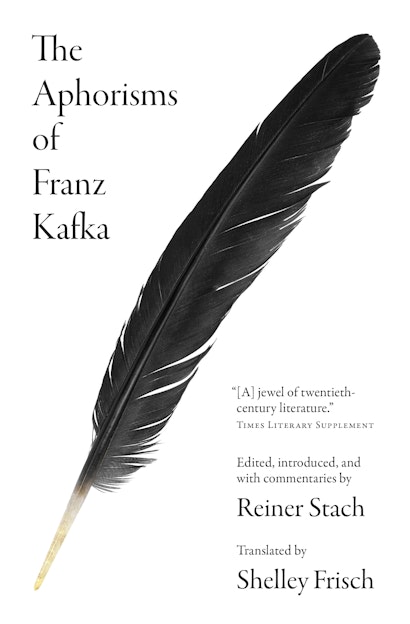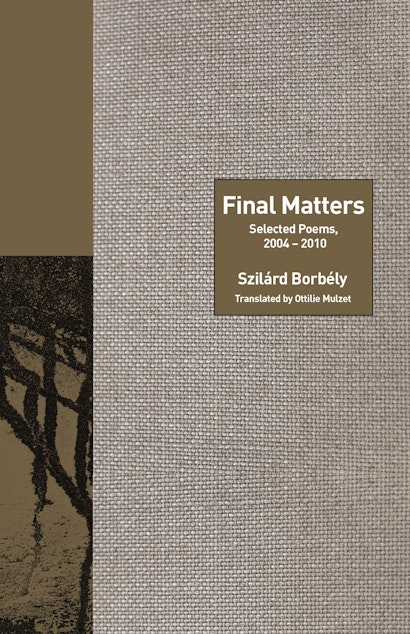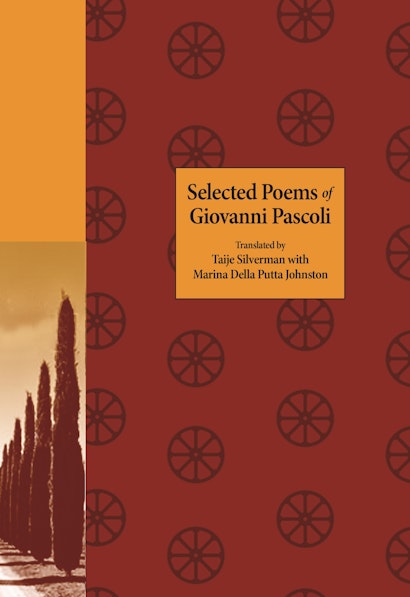In recent years, âWomen in Translationâ month has emerged as a critical platform for questioning the underrepresentation of women authors in translated literature and exploring the significance of bringing their works to a global audience. At its core lie the vital and pressing questions: Why arenât more works by women being translated, and why are women in translation so important? By highlighting the contributions and perspectives of women authors/translators across cultures, this month seeks to challenge prevailing assumptions, narratives, and biases that have led to the lack of representation and recognition for women writers in translated literature. We turn our focus to this critical issue and engage with three of our authors and/or translators to shed light on the specific barriers, challenges, and prejudices faced by women in translation, while celebrating the profound impact and significance of their stories in fostering a more inclusive and interconnected world of literature.
Shelley Frisch | Billy Wilder on Assignment: Dispatches from Weimar Berlin and Interwar Vienna; The Aphorisms of Franz Kafka; Kafka: The Early Years; Kafka: The Decisive Years; and Kafka: The Years of Insight
Back in 1982, when I joined Columbia Universityâs faculty as an Assistant Professor of German, I was asked to teach a section of the literature and humanities core curriculum. This heady two-semester sequence began with the Iliad and Odyssey and ended with Dostoevsky, racing from one book deemed âgreatâ to the next. Every author was male. When several of us sought to broaden the scope to include women writers (or at least one single woman writer), a male committee member sighed, âI guess weâll have to include âwhatâs-her-name.ââ âWhatâs-her-name,â it turned out, was Jane Austen. Austen was dutifully tacked on to the following yearâs syllabus. Luckily (or rather, as the result of many peopleâs dedicated work over the years), the outlook for the inclusion of womenâs writing has become far brighter.
âThese days there are many more women than men in our profession, yet even now, more translation prizes go to men.â
I hardly think I need to make the case, in 2023, that literature by women is worth reading, but of the few texts that make their way to English-speaking countries from foreign shores, fewer still are written by women. The disparity begins at the acquisitions stage, with the unfounded perception that literature written by womenâespecially when offered in translationâwonât catch on with English-language readers. This perception often carries over to lackadaisical marketing and publicity efforts.
âWomen in translationâ is a two-pronged issue, comprising women authors and women translators. There was a time that women translators typically remained unnamed, while their co-translators were given the sole credit. The thrice-married Caroline Schelling worked side by side with one of her earlier husbands, August Wilhelm Schlegel, at the dawn of the nineteenth century, on their German translations of the writings of Shakespeareâstill a standard for German readers of the bardâyet her name did not appear on any of their translations. These days there are many more women than men in our profession, yet even now, more translation prizes go to men. In the 27-seven-year history of Helen and Kurt Wolff Translatorâs Prize, only 11 women translators garnered the prize, and a mere 4 women authorsâJenny Erpenbeck, Judith Hermann, Judith Schalansky, and Christine Wunnickeâemerged as winners. (Full disclosure: I served as jury chair for this prize for several years, after being awarded the prize in 2014 for translating Reiner Stachâs biography of Kafka.)
But letâs shift the focus from handwringing to highlighting impressive initiatives to promote women in translation over the past decade. In 2014, Meytal Radzinski, a biochemist in Israel, founded the Women in Translation project, and set August as its celebratory month; Women in Translation Month has become an annual international event. My local libraryâPrinceton Public Libraryâhails this month with a large and appealing display of women authors in English translation near the buildingâs entrance, with librarian Nora Walsh updating the list of recommended books every year. The following year, Stefan Tobler, publisher of the UK small press And Other Stories, committed to publishing a full year of books exclusively by women. The Warwick Prize, launched in 2017 in the UK by Chantal Wright and several colleagues, honors the finest books in translation with a prestigious annual award. More recently, Larissa Kyzer, in New York, founded Jill!, a reading series that spotlights women, trans, and/or nonbinary translators and authors. Next month, PEN America will sponsor a Women in Translation Reading Series, moderated by Nancy Naomi Carlson, Esperanza Hope Snyder, and Katherine E. Young. This yearâs Dublin Literary Award, which offers an eye-popping sum of 100,000 euros to be divided among the winning author and translator, went to two women: Katja Oskamp, the author of Marzahn, Mon Amour, and translator Jo Heinrich. The more of these initiatives, the merrierâtranslators, publishers, booksellers, writersâ groups, universities, professional associations, public and university libraries, and granting institutions can and should join forces to promote fine literature by women.
Iâll close with a list of a few of my favorite recent booksâall superb, and all both written and translated by women: The Antarctica of Love, by Sara Stridsberg, translated from Swedish by Deborah Bragan-Turner, Linea Nigra, by Jazmina Barrera, translated from Spanish by Christina MacSweeney, Boulder, by Eva Baltasar, translated from Spanish by Julia Sanches, Books of Jacob, by Olga Tokarczuk, translated from Polish by Jennifer Croft, Present Tense Machine, by Gunnhild Ăyehaug, translated from Norwegian by Kari Dickson, Convenience Store Woman, by Sayaka Murata, translated from Japanese by Ginny Tapley Takemori, and Tomb of Sand by Geetanjali Shree, translated from Hindi by Daisy Rockwell. This list could go on and on. As for the original question posed for this pieceâwhy are women in translation so important?âthe answer is clear: because they afford us a rich array of reading pleasure.
Ottilie Mulzet | Final Matters: Selected Poems, 2004â2010
My personal translation practice has always been oriented towards the âpoetry of witnessâ in Hungarian literature. By this, I mean several consecutive generations of authors seeking to create a literary testimony toward preserving the traumatic legacy of the multiple mid-20th-century totalitarianisms that affected Hungary itself. Within this current, women authors have from the outset played a crucial role.
âObviously, structural inequalities in a given literary establishment will shape the choice of which writers are selected for translation, a selection bias across the language-boundary that has hardly been acknowledged until quite recently.â
Of course, the Hungarian post-1945 traditionâas in many other national cultural formationsâhas been distorted by the gatekeeping of established figures who saw the greatest value in the work of their male counterparts. Anna MenyhĂŠrt, in her monograph on womenâs writing in Hungary, points out the absence of women in the literature textbooks of her school years (still much the same today), conveying to âthe large majority of the countryâs population that women donât write. This, however, is not true.â[1] She characterizes the tradition of modern Hungarian womenâs writing as âboth hidden and [hiding] itself away in the manner of a sinking stream which comes to the surface only to vanish underground againâ, the result of the complex dynamics of canonization and readerly reception.[2]
Obviously, structural inequalities in a given literary establishment will shape the choice of which writers are selected for translation, a selection bias across the language-boundary that has hardly been acknowledged until quite recently. In particular, the âsmall-languageâ factor can itself hinder efforts to rectify the balance: if all authors writing in a relatively little-known language face the same barriers in a vastly larger linguistic market, regardless of their undeniable talents, the translator can be left with much less energy to push for those authors already disadvantaged within their own environment. Adding to these complexities are the external social circumstances impinging on the literature of a nation like Hungary, facing demons without and withinâhistorical legacies of war, genocide and totalitarianism; current outbreaks of illiberalism, racism, LGBTQphobiaâthat only exacerbate the persistence of longstanding representational gaps amid the pressing immediacy of confronting power.
Here, of course, is where women in translation can help the most. Not only in bringing an awareness of extant structural misogynies but, perhaps even more, in realizing how they connect to forms of injustice perceived as major by the standard male perspective. And to perform the vital operation of diving into the âsinking streamâ of Hungarian letters to show how much the Hungarian literary canon of the late 20th century and the early millennium has truly been the joint work of the many major women participating in it.
Many of the poets Iâve translated were influenced directly by the generation immediately preceding them, associated with the journal ĂÂáłó´Çąôťĺ (âNew Moonâ): founded immediately after the genuinely seismic trauma of World War II and Hungaryâs complicity in the Holocaust, yet soon suppressed by the Stalinist regime of the 1950s. The Hungarian poet whom Iâve translated the most, and who in many ways sums up this lineage of unsparing poetic witness, was SzilĂĄrd BorbĂŠly (1963â2014). However, in recently working on the poems of (1930â2006), Iâve been especially struck by Beneyâs poetic approach to extreme bereavement (she lost her two-year-old son to meningitis and her husband to suicide in quick succession in her 30s). It is hard not to feel that, along with the seminal work of JĂĄnos Pilinszky, Beney provided something of a pathway to BorbĂŠly as well, as he grappled with personal and historic loss. One could mention an intensity of abstraction; a sparseness of language that seems to resist materiality.
Another Hungarian woman poet Iâve been working on, (1933â ), herself a survivor of the Hungarian Holocaust, uses poetic means that radically diverge from Beneyâs allegiance to a modernist idiom. GergĂŠly adheres strictly to traditional patterns of carefully measured rhythm and full rhyme. Yet even within this deliberately traditionalist framework, as if clinging to poetic form as the last refuge in totalitarianism and war, she is no less adept at bringing to life equally abstracted and enigmatic turns of phrase, indeed fragments of disturbed language.
This âweb of wordsâ, as Beney herself put it, could well be interpreted as a technique of deliberate and targeted care, an attempt to mend the wounds of war and genocide. In a certain view, it may seem self-referential, even perhaps too deferential to the past. Yet recalling the reality of the mid-20th century in this part of the world, it equally represents the formulation of a common space of words in the wake of disaster. Poets like Beney and Gergely are crucial elements in this vivid transmission, and equally names that should be far better known on the world stage.
Taije Silverman | Selected Poems of Giovanni Pascoli
When I first submitted Selected Poems of Giovanni Pascoli for Princetonâs consideration, the editors responded anonymously. Two sent praise and smart suggestions. The third sent smart suggestions and also wrote that my English seemed âoverweight.â Lines were âlousyâ and âpretentious.â At one point I âdecide[d] to go all Chinesey,â a claim I still donât understand. âSilverman,â wrote the editor, âtries to prettify her native informantâs trot in order to show herself off as a poet.â
I didnât think, âNo.â I didnât think, âI am trying to show the poem off, as a poem.â Nor: âPrettify?â I thought: âherself.â âSheâ is prettifying to show âherselfâ off. The pronoun dropped from above, heavier than I am, so my arms fell with its weight.
The anonymous editor followed with examples, citing a poem in which Pascoli describes a girl who, in my translation, âweeps, / and stains her sheets while neatening the bed.â
âStains her sheets?â the editor asked. âMenstruation? Incontinence?â
Women in translation are important because my eminent, white, male editor at Princeton saw menstruation and incontinence in my translated image of a woman crying.
âWhen I am asked why women in translation are important, my response is a sack of shame, in which each refusal to let me exist beyond the intentionally irrelevant âherselfâ slides into a mass of others, insisting I stay mute.â
I didnât yet know that the editor was a man. (Only the editorsâ initial responses were anonymous; our subsequent correspondence was not.) But I felt those questions the way I felt the hands of ten-year-old boys grabbing my butt on a street in Kathmandu, the way I felt the tongue of a tenth grader I didn’t know shoved into my ear before history class began, the way a colleague once said my ignorance was part of my charm. I felt them the way this list doesn’t end for women, does it, and you to whom I am writing must keep your list in your body, too.
Three years of revisions later, I wrote my introduction for the bookâworking through twelve drafts over months and securing my Ivy League-educated and -employed, white, Shakespearean scholar of a husbandâs unequivocal approval before sending it to the press.
Instantly the third editor wrote back, at three in the morning, to say my âconfused and diffuse piece of introductory scut-workâ would need to be completely rethought. âYou may be first and foremost a poet,â he began, âbut here, in this particular genre, you also have to be in command of prose.â He added that if I cite âthe parochial and mediocre poetics of Rita Dove,â as a model, I am âshooting myself in the foot.â
Whether weâve written twelve drafts of an introduction or a page of pig Latin, I donât want powerful white men suggesting women have no command of prose. I donât want them telling us we cannot cite Rita Dove. I donât want them explaining that our models are Pound, Bunting âabove all,â and Hopkins, âfor a far more sophisticated handlingâ than ours. If someone is going to tell me who my models are, let it be someone whose life has been punctuated by butt grabs and being spoken over.
During eight years of working intensively on this projectâthrough pregnancy, breastfeeding, a day job (because those eight years and countless hours earned me seven hundred and fifty dollars, in a 1,500 split with my co-translator)âI turned most often when stuck to Rita Dove and Gwendolyn Brooks. The acrobatic brilliance of Brooksâs meters and registers seems in direct conversation with the classical patterns into which Pascoli fits farmersâ gossip. The sly boundaries of Rita Doveâs sonnets are equally relevant.
After leaning my shame against the backbone of a female mentor, I wrote the editor back, saying I would consider his suggestions as I revised the introduction, but I would ignore his three am email in order to continue our conversation.
Two weeks later the editor wrote to apologize for his âintemperate insomniac irritation.â But, he added, âencountering Rita Dove as your model for this translation on the very first page made me reach for my luger.â
My citation of the second Black poet to win the Pulitzer Prize caused this white man to reach for his German-made gun. By way of apology.
Even now, four years after the translations I first sent Princeton became a book, when asked why women in translation are important, I think I shouldnât write about this. That I should not write anything that hasnât been preapproved by Basil Bunting above all, should not write anything that could be mistaken for menstruation, should not write anything by herself.
I understand I shouldnât write about the editor. I understand it with menâs hands on my butt. With their tongues flicked at me from the car behind mine. I understand it with the reasoning of the Italian poet who hosted my Fulbright Fellowship that if I wouldnât sleep with him, he couldnât introduce me in professional circles, because my presence would impede his seduction of other women.
The editor did not touch my butt or flick his tongue. He is no more responsible for those experiences than is Emily Dickinson or my dog. But when I am asked why women in translation are important, my response is a sack of shame, in which each refusal to let me exist beyond the intentionally irrelevant herself slides into a mass of others, insisting I stay mute. As I get older, and more people consciously vote rapists into presidential palaces and onto supreme courts, the mass of refusals begins to shrivel.
Why are women in translation important? I want my answer to be a gash in the sack of shame. But you have to be in command of prose, the editor reminds me from inside it, muttering luger, and menstruation, and scut-work, and confused. I want to translate his words into a blank page.
Shelley Frisch is an award-winning translator whose work includes Stachâs Kafka biography, Karin Wielandâs Dietrich & Riefenstahl, and Billy Wilder on Assignment (Princeton), among many other books.
Ottilie Mulzet is a literary critic and the translator of The Dispossessed and Berlin-Hamlet, among other books. Her translation of the novel Seiobo There Below by LĂĄszlĂł Krasznahorkai won the 2014 Best Translated Book Award. She lives in Prague.
Taije Silverman is a poet and translator. She teaches at the University of Pennsylvania and is the author of the poetry collections Houses Are Fields and Now You Can Join the Others. Her Selected Poems of Giovanni Pascoli (translated with Marina Della Putta Johnston) was shortlisted for the John Florio Prize.
This exchange was facilitated by Yutong Li, Social Impact Fellow.
Notes
[1] MenyhĂŠrt, Anna, Womenâs Literary Tradition and Twentieth- Century Hungarian Writers: RenĂŠe ErdĹs, Ăgnes Nemes Nagy, Minka CzĂłbel, Ilona Harmos KosztolĂĄnyi, Anna Lesznai, trans. Anna Bentley. Brill NV, Leiden, The Netherlands, 2020, p. 4.
[2] Ibid, p. 9.



